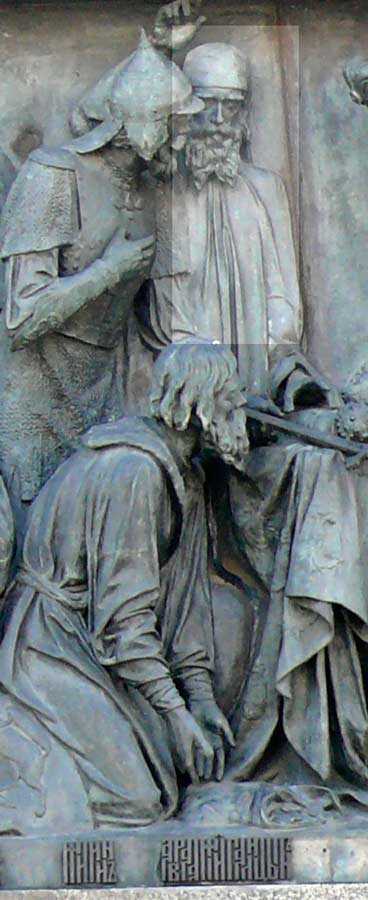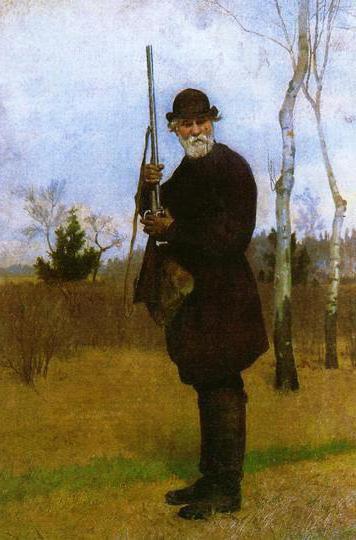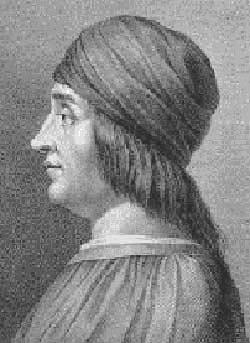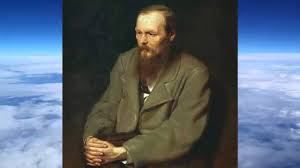“Taras Bulba” Gogol
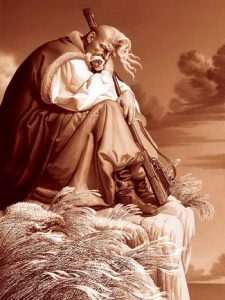 The story of Gogol’s creation of the Taras Bulba story, the history of influences on the author of literary works by his predecessors, is very complex and has not yet been fully elucidated. First of all, interest in the past of Little Russia, and especially in the Cossacks, as the most vivid manifestation of its history, was strong in Gogol from his youth. He dreamed about creating a historical tragedy from the life of old Ukraine, then about the history of Little Russia, “in six small, or in four large volumes”. For this story, he even collected materials, in his words, “about five years.” These materials are very diverse chronicles of Little Russia, notes, songs, stories of bandurists, business papers. “The Story of Little Russia” by Bantysh-Kamensky was also a manual, well known to him. But of all these “manuals” and “materials” Gogol soon focused on the “folk songs”. “My joy, my life, songs! – he wrote to their collector Maksimovich. – How I love you! With all the callous annals in which I now rummage, before these sonorous, living chronicles! I can’t live without songs … You can’t imagine how they help me in the history of the song, they all give a new touch to my story! “” Every sound of the song tells me more about what happened than our sluggish and short annals “, he wrote to Sreznevsky. “Songs are a folk story, alive, bright, filled with colors, truth, exposing the whole life of the people, he wrote in“ Arabesques ”about Little Russian songs. “In this respect, the songs are for Little Russia, everything: poetry, history, and the father’s grave.” Gogol further says that the sensitive historian can learn from songs “the life, the elemental character, all the twists and shades of feelings, excitement, suffering, the joys of the people, the spirit of the past century, the general character of the whole, so that history will reveal itself in clear majesty”. All these instructions, coming from the author himself, then a series of studies made by critics, prove that the creation of “Taras Bulba” had a great influence on the song (especially on the first version); they were reflected in the style of the story, especially in its lyrical places: descriptions of battles, the characteristics of Taras and Ostap, in the love story of Andria. In some places, the very language of the story takes the warehouse of the song, goes into the size of a folk song. Understanding in the “Taras Bulba” Cossacks, his ideals are all inspired by songs.
The story of Gogol’s creation of the Taras Bulba story, the history of influences on the author of literary works by his predecessors, is very complex and has not yet been fully elucidated. First of all, interest in the past of Little Russia, and especially in the Cossacks, as the most vivid manifestation of its history, was strong in Gogol from his youth. He dreamed about creating a historical tragedy from the life of old Ukraine, then about the history of Little Russia, “in six small, or in four large volumes”. For this story, he even collected materials, in his words, “about five years.” These materials are very diverse chronicles of Little Russia, notes, songs, stories of bandurists, business papers. “The Story of Little Russia” by Bantysh-Kamensky was also a manual, well known to him. But of all these “manuals” and “materials” Gogol soon focused on the “folk songs”. “My joy, my life, songs! – he wrote to their collector Maksimovich. – How I love you! With all the callous annals in which I now rummage, before these sonorous, living chronicles! I can’t live without songs … You can’t imagine how they help me in the history of the song, they all give a new touch to my story! “” Every sound of the song tells me more about what happened than our sluggish and short annals “, he wrote to Sreznevsky. “Songs are a folk story, alive, bright, filled with colors, truth, exposing the whole life of the people, he wrote in“ Arabesques ”about Little Russian songs. “In this respect, the songs are for Little Russia, everything: poetry, history, and the father’s grave.” Gogol further says that the sensitive historian can learn from songs “the life, the elemental character, all the twists and shades of feelings, excitement, suffering, the joys of the people, the spirit of the past century, the general character of the whole, so that history will reveal itself in clear majesty”. All these instructions, coming from the author himself, then a series of studies made by critics, prove that the creation of “Taras Bulba” had a great influence on the song (especially on the first version); they were reflected in the style of the story, especially in its lyrical places: descriptions of battles, the characteristics of Taras and Ostap, in the love story of Andria. In some places, the very language of the story takes the warehouse of the song, goes into the size of a folk song. Understanding in the “Taras Bulba” Cossacks, his ideals are all inspired by songs.
From the historical writings Gogol borrowed some facts: the life of the Sich, its customs and customs, various details from the centuries-old struggle of the Cossacks with Poland, all of which was taken from historical works.
He introduced Gogol into his story and his cherished aspirations and ideals: he put a hot speech in the mouth of Taras Bulba, glorifying Russia and the Russian people. The influence of Slavophile friends was clearly expressed in this apotheosis of the Russian soul: “No, brothers, love as much as the Russian soul can love, love not with the mind, or with others, but with everything God has given that is in you !.. not! no one can love like that! ”…
Creating “Taras Bulba”, Gogol had his predecessors in foreign and in Russian literature. Walter Scott is considered the father of a historical novel: he was the first to combine knowledge of history with an entertaining poetic story; he first taught in the historical novel the credibility of the story to build on the correct transmission of local, historical and ethnographic background. A whole galaxy of novelist historians followed in his footsteps: Victor Hugo, Vigny, Pushkin among us, were the most prominent representatives of this genre. Gogol, creating “Taras Bulba”, joined this honorary list.
We had a less noticeable novelist Narezhny, who wrote many historical stories, sentimental and patriotic. Above it stands the popular Marlinsky; his stories from Russian history are distinguished by external historical truth, he painstakingly portrayed historical fidelity of the situation, scenery, but did not penetrate the spirit of the past. That is why his heroes of ancient Russia speak and think like people of the XIX century. Roman Zagoskina “Yuri Miloslavsky” in his time, was a major literary event, but later criticism debunked this work; fake patriotism, which led to the extreme idealization of all Russian and to the caricature of the Polish, the main feature of this novel. The historical element in the story is poorly sustained and has a popular print. Lazhechnikov’s novels were also popular, but there were also a lot of usual romantic horrors, delights of sentimentality in love affairs and fake patriotism in the main coverage.
All these works of Marlinsky, Zagoskin, Lazhechnikov and others belonged to the group of romantic historical novels; “Taras Bulba” joined them. Thus, Gogol did not indicate a “new path” in the creation of a historical novel, but the old brought it to perfection. In “Taras Bulba” he avoided all the anti-artistic conventions without lowering the general romantic tone of the whole story: “He did not bring sentimental love intrigue.
